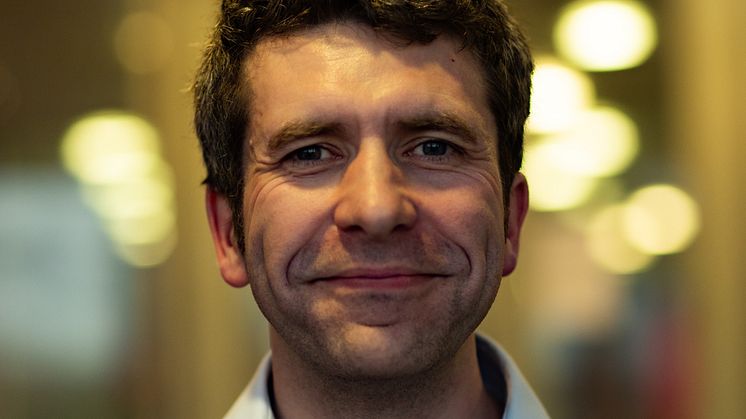
Press release -
Past, Present and Uncertain Future of Stroke Care in Scotland
By Professor Terry Quinn, David Cargill Chair in Geriatric Medicine and Honorary Consultant Physician in Stroke and Geriatric Medicine at University of Glasgow. His article was first published in The Times Scotland.
As a junior doctor in the early 2000s, I decided to work in Scotland specialising in stroke-care. This was for two reasons, firstly I could see that stroke was common in Scotland, especially where I was from in Glasgow. An important second consideration was that I wanted to be on a ‘winning team’.
Scotland had a proud history of innovation and impact in stroke. The first stroke unit in the world was in Glasgow, Scotland helped develop treatments like thrombolysis, and Scottish stroke research featured prominently in International scientific meetings.
As I reflect on contemporary stroke-care, and the recent Scottish Stroke Care Audit report, I wonder if a doctor choosing a career now would feel the same. Certainly, the burden of stroke has not improved, if anything things may be worse. Around 130,000 people in Scotland are stroke survivors, with over half the population having a close personal connection to stroke.
Are Scotland still world leading in the delivery of treatments that we pioneered. The audit data would suggest this is not the case. Stroke can be a life changing condition, and many survivors are left with severe physical and mental health problems. Modern treatments can substantially reduce this disability.
A good example is mechanical thrombectomy, where a blockage in a blood vessel is removed to restore brain blood flow and prevent stroke damage. Estimates of the benefit of thrombectomy vary, but many report that for every three people treated, one person walks out of hospital who would otherwise have been permanently disabled. Few other treatments in modern medicine can boast such an impressive effect.
Given the clear benefits, why does Scotland have some of the poorest access to thrombectomy in Europe. Although the situation is changing for the better, it remains true that thrombectomy access is dependent on where you live and time of day. We would not accept being told that a heart attack couldn’t be treated because it was too late in the evening, or that an appendix would not be removed because of a person’s postcode, the same arguments should hold for stroke.
I still work in front line services, and I see how hard teams are working to deliver stroke-care. It is not the increasingly stretched clinical service that needs to improve, rather there is an urgent need for investment and prioritisation of stroke-care at local and national level.
The reasons for Scotland’s stroke care performance are complex, but they are not insoluble. When I hear that Ukraine is achieving more thrombectomy per population than Scotland, then it seems clear that with political will it is possible to improve stroke-care in even the most difficult of circumstances.
Professor Quinn's research has been funded by the Stroke Association in the past. He is a long standing and much valued supporter of our work to influence improvements in stroke treatment and care in Scotland.
Sources
Scottish achievements in stroke care:
https://www.gla.ac.uk/schools/medicine/mus/ourfacilities/history/20thcentury/1948-2018/stroke/
Stroke thrombectomy rates in Ukraine (1.5% population)
https://eso-stroke.org/2024-eso-statement-on-the-war-in-ukraine/
Stroke thrombectomy rates in Scotland are 1.4% population
Topics
Regions
Over 88,000 people survive a stroke every year in the UK, but surviving a stroke is just the start of a long and traumatic battle to finding their way back to life.
The Stroke Association is the only charity in the UK providing life-long support for all stroke survivors and their families. We provide tailored support to tens of thousands of stroke survivors each year, fund vital scientific research, and campaign to bring the best care and support for everyone affected by stroke.
Anyone affected by stroke can visit stroke.org.uk or call our dedicated Stroke Support Helpline on 0303 3033 100 for information, guidance or a chat when times are tough.











